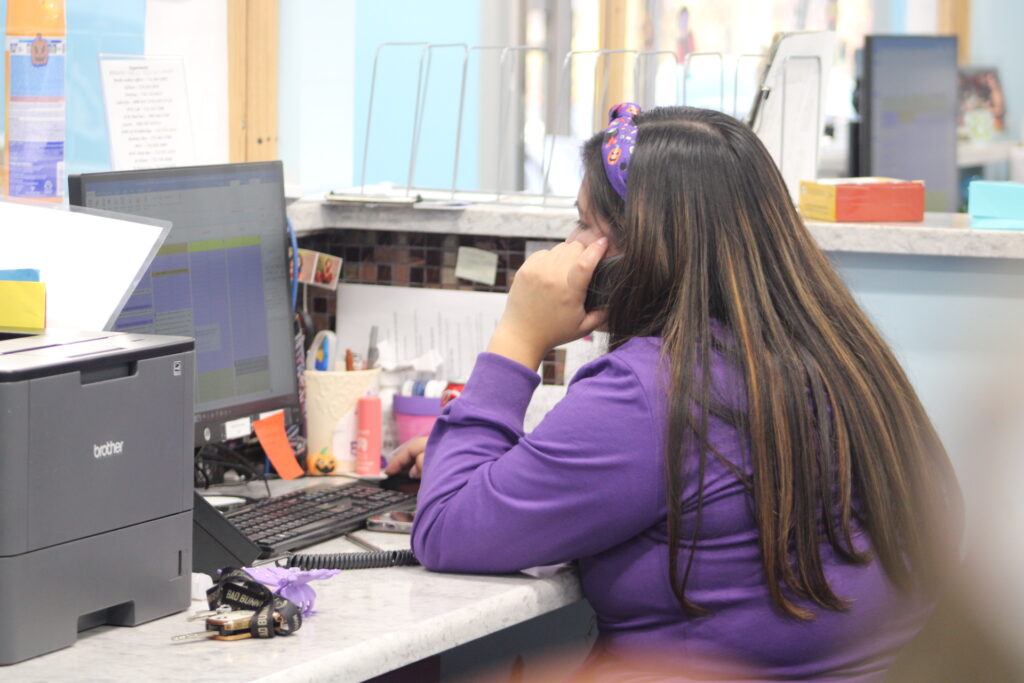
As a parent, you are your child’s biggest champion, guiding them through life’s milestones and making important decisions about their health.
Human papillomavirus (HPV) is the most common sexually transmitted infection in the United States. There are more than 100 types of HPV, and while most of them are harmless and cause no symptoms, about 40 types can infect the genital areas. Some of these are considered “low-risk” and may cause genital warts, while others are “high-risk” and can lead to cancer.
Each year, HPV causes nearly 37,000 cases of cancer in men and women in the U.S. These cancers include:
The virus spreads through intimate skin-to-skin contact, which means anyone who is sexually active can get it, even if they have only had one partner. Because HPV often has no symptoms, a person can have the virus and pass it on without ever knowing it. This is why prevention is so powerful.
The HPV vaccine is one of the most significant public health breakthroughs of our time because it is a cancer-preventing vaccine. It works by protecting your child from the specific HPV types that cause most related cancers and genital warts. By getting the vaccine long before they are ever exposed to the virus, their body builds a strong immune response that provides lasting protection.
The Centers for Disease Control and Prevention (CDC) has recommended routine HPV vaccination for over 15 years. Since then, infections with HPV types that cause most cancers and genital warts have dropped by an incredible 88% among teen girls and 81% among young adult women. The vaccine is not just for girls; it is equally important for boys to prevent genital warts and cancers of the throat, anus, and penis.
Timing is everything when it comes to the HPV vaccine. The goal is to complete the series well before any potential exposure to the virus. At Colonia Pediatrics, your pediatrician in Avenel follows the schedule recommended by the CDC for maximum effectiveness.
For Children Ages 9-12:
Starting the vaccine at this younger age produces a more robust immune response. If your child receives their first dose before their 15th birthday, they only need the two-dose series.
For Teens and Young Adults Ages 15-26:
Anyone who starts the series on or after their 15th birthday will need all three shots to be fully protected.
It’s never too late to get back on track. If your child missed a dose, there is no need to restart the series. Simply schedule an appointment with your pediatrician to get the next shot as soon as possible. Our team at Colonia Pediatrics can help you figure out the best timing for any remaining doses.
The CDC recommends the HPV vaccine for everyone through age 26, if they were not adequately vaccinated already.
For adults ages 27 through 45, the decision to get the HPV vaccine is based on shared clinical decision-making. This means you should have a conversation with your doctor about your personal risk factors to decide if the vaccine is right for you. The vaccine provides less benefit in this age group, as most people have already been exposed to HPV.
Yes, the HPV vaccine is very safe. It has been used in the United States and around the world for more than 15 years and has been the subject of extensive safety testing and monitoring. Over 135 million doses have been distributed in the U.S. alone. Like any vaccine, it can have side effects, but they are almost always mild and temporary.
Common side effects include:
Serious side effects are extremely rare. The benefits of preventing cancer far outweigh the potential risks of mild, temporary side effects.
At Colonia Pediatrics, we are committed to being your trusted partner in your child’s lifelong health journey. We understand that you may have questions about the HPV vaccination schedule, and our team is here to provide the answers and support you need.
Our pediatricians in Avenel will:
The HPV vaccine is a safe and proven tool to protect your child from several types of cancer later in life. By following the recommended HPV vaccination schedule, you are taking a powerful step toward securing their future health.
If your child is due for their HPV vaccine or you have questions about their immunization status, contact Colonia Pediatrics today. Let’s work together to give your child the gift of cancer prevention.